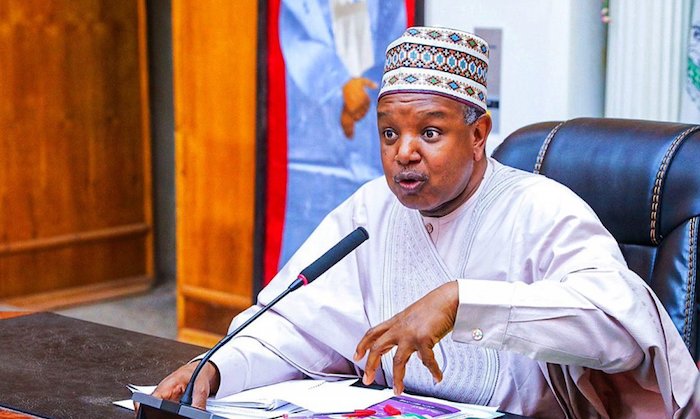Nigeria’s Minister of Budget and Economic Planning, Senator Abubakar Bagudu, emphasized on Thursday that despite recent economic growth, millions of Nigerians still face multidimensional poverty. He noted the country’s unique challenges in addressing poverty due to its diverse population and regions.
Speaking at a one-day high-level stakeholders’ dialogue on operationalizing the Multidimensional Poverty Index (MPI) in Nigeria, Bagudu revealed that about 40 percent of Nigerians live below the poverty line. He explained that the MPI highlights deeper, multidimensional aspects of deprivation, offering a comprehensive measure of poverty beyond traditional income-based metrics.
Bagudu stated that the government had positioned the MPI to play a pivotal role for policymakers, academia, civil society, and the public. He stressed that the federal government would continue to support the MPI through the National Poverty Reduction with Growth Strategy (NPRGS) and the implementation of President Bola Tinubu’s eight-priority areas.
He called for a holistic approach to poverty reduction, recognizing the interlinked deprivations affecting millions of Nigerians. Bagudu urged stakeholders to leverage the MPI to craft informed, targeted, and effective policies to address poverty’s root causes and promote sustainable development. He envisioned a Nigeria where every individual has the opportunity to thrive and no one is left behind.
The MPI is part of the NPRGS, launched in 2021, as a 10-year program to eradicate extreme poverty and accelerate human capital growth. It aims to sustain poverty reduction through economic growth and social protection programs. The MPI, launched in 2022, is a collaborative effort involving the National Bureau of Statistics (NBS), United Nations Development Programme (UNDP), Oxford Poverty and Human Development Initiative (OPHI), and other stakeholders. It offers a nuanced understanding of poverty by considering dimensions such as education, health, and living standards.
Statistician-General of the Federation and Chief Executive of the NBS, Prince Adeyemi Adeniran, highlighted the dialogue’s potential to shape Nigeria’s approach to tackling multidimensional poverty. He emphasized the importance of using the MPI data to benefit citizens and called for continuous training and technical capacity building. Adeniran appealed for more government and donor support to produce timely and sustainable data to monitor and track the impact of interventions and design new ones as needed.
